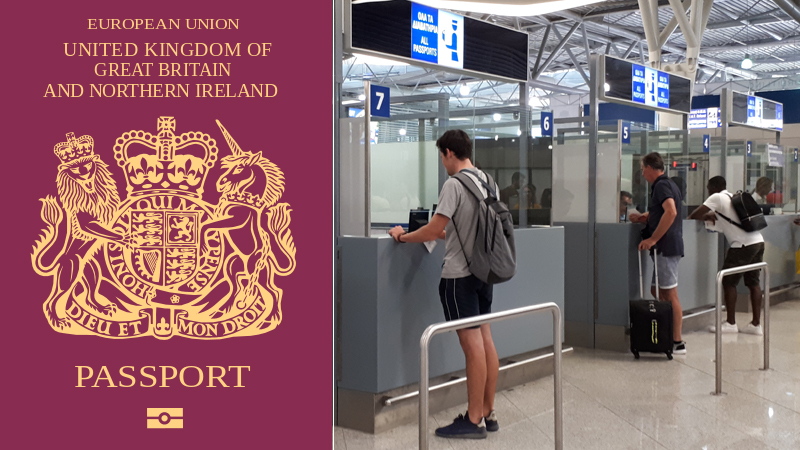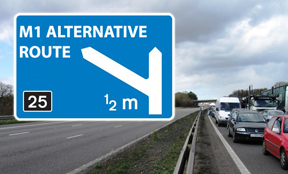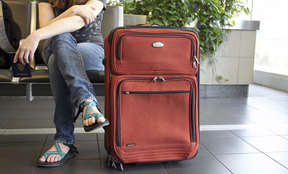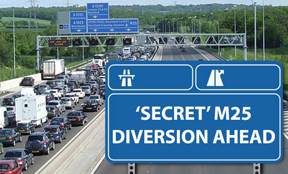
A threat to shutdown France could potentially cause travel chaos for British tourists – here’s how your holiday could be hit.
British holidaymakers planning to drive in France this September could face major disruption as an online protest group calls for a “complete and indefinite shutdown” of the country starting from September 10, 2025.
The group, named mobilisation10septembre (currently deactivated, along with its X page) is urging citizens to take part in peaceful but widespread action to protest against the French government’s latest austerity plans – and the resulting chaos could affect roads, services, and even fuel access.
There is much confusion in the French media over the roots of this protest group, or it will go ahead and cause widespread disruption across the French nation - and, in turn hit British travellers heading to or through the country during September, but here's what we know so far...
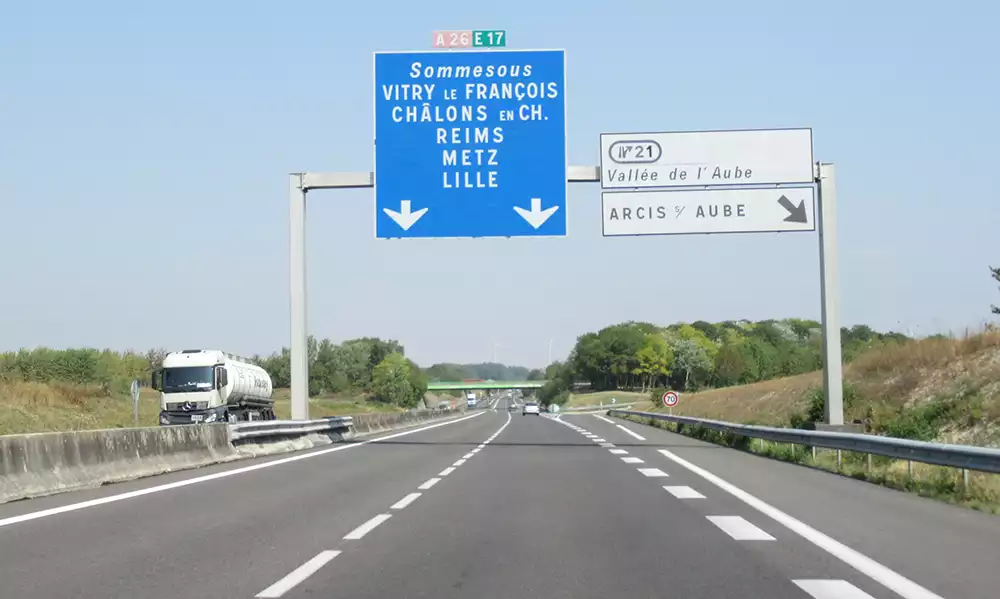 A movement in
France is calling for a major shutdown across France in September - a protest against French austerity
that could hit roads, fuel supplies and other aspects of travel for Brits (Photo by Roman
Rezor on Unsplash)
A movement in
France is calling for a major shutdown across France in September - a protest against French austerity
that could hit roads, fuel supplies and other aspects of travel for Brits (Photo by Roman
Rezor on Unsplash)
What’s behind the planned shutdown?
The protest was sparked by a controversial budget plan revealed by Prime Minister François Bayrou on July 15. Key measures include scrapping two public holidays – Easter Monday and VE Day – to cut €43.8 billion from the deficit. Critics say it unfairly targets the most vulnerable, with planned cuts to healthcare, pensions, and thousands of public sector jobs.
While not officially backed by trade unions, the movement has received positive views from major unions including CGT, CFDT, and FO, who labelled the reforms “unspeakably brutal”.
What could it mean for UK drivers and holidaymakers in France?
If the movement’s plans gain traction, it could have serious knock-on effects for anyone driving or holidaying in France – especially British tourists relying on smooth road trips or ferry crossings.
1. Widespread road blockades
The group has floated the idea of “targeted blockades”, including roads. This could lead to major traffic jams, closed motorways, or delays near ports such as Calais and Cherbourg – key entry and exit points for UK drivers.
2. Petrol and diesel shortages
Organisers are encouraging people to boycott fuel and “refuse to consume what fuels the system”, a stance reminiscent of the gilets jaunes protests, which previously saw petrol stations run dry and pump prices soar. UK drivers in hire cars or EVs may struggle to find open fuel stations or charging infrastructure during blockades.
3. Strikes in transport and public services
The protest also includes calls for civil disobedience, including transport and healthcare strikes. This could affect everything from toll booth staff and traffic control to ferry workers and emergency services, making travel uncertain or even unsafe.
4. Delays and closures at tourist hotspots
As protestors plan symbolic occupations of public buildings like town halls, some tourist attractions or local services may be shut or disrupted. British travellers hoping to visit museums, historical sites or enjoy local markets could find plans derailed.
5. Reduced access to supermarkets and fast food chains
Mobilisation10septembre is encouraging boycotts of companies like Carrefour, Auchan, Amazon, Uber and Deliveroo, which could result in reduced services or supply issues for travellers wanting easy access to food or essentials.
Should UK travellers cancel their French holiday?
At this stage, it’s too early to tell how much support the movement will attract – its X (formerly Twitter) page had under 800 followers as of late July (the account now appears to have been deleted like the group's website).
However, media coverage is growing and discontent with the budget is high, suggesting momentum could build over the summer.
UK tourists with road trips planned in September should monitor the situation closely, check for updates from ferry firms and French authorities, and have a backup plan if blockades or shortages develop.
What date are protests due to start?
According to English-language French newspaper, The Connexion, the group explained they picked September 10 for the blockade because it marks the "start of the social year, when everything begins again."
By declining to "fuel the system that is oppressing us," they believe September 10 could become "a day that changes everything".
Where could demonstrations take place?
The group is aiming for nationwide participation. On its website, which has since been taken down, it featured an interactive map showing planned gatherings.
Cities expecting events on September 10 include Amiens, Angers, Avignon, Besançon, Bordeaux, Brest, Clermont-Ferrand, Dijon, Grenoble, Le Mans, Lille, Limoges, Lyon, Marseille, Metz, Montpellier, Nancy, Nice, Orléans, Pau, Poitiers, Reims, Rennes, Strasbourg, Toulouse, Troyes, and Valenciennes.
The map also highlighted key blockades, such as at the Port du Havre and petrol stations across the Île-de-France region.
Has the protest ended before it has started?
Some internet users believe the September 10 protest may already be off, after the movement’s website and X page went offline.
An opinion piece in Le Point, a major French weekly news magazine and website, quotes influential X user, ‘Le_patriote 13,’ as wondering if the protest has already been cancelled.
So far, the organisers have remained silent — neither confirming nor denying the cancellation.
What happens next?
If the protests escalate, British drivers could be caught up in the chaos of a country grinding to a halt – much like during the yellow vest movement.
So if you're planning to hit the French roads this autumn, be prepared for the possibility of delays, disruptions, and a very different kind of travel experience.
Stay informed and keep an eye on trusted sources – we'll be updating this guide as September 10 approaches.
READ MORE ON DRIVING IN FRANCE
Take a look at more of our top motoring-related content here...
-
SIGN OF THE TIMES: Find out what a white diamond sign means in France
-
BEWARE: Find out the drink and drug driving rules for France
-
SPEED TIPS: Do I get points on my licence if caught speeding in France?
-
PLUG-IN: Find out about charging electric cars in France
-
SECRET SPEED CAMERAS: Look out for undercover speed camera cars
-
GET YOUR FILL: Interactive map to find the cheapest petrol stations near you in France
-
PERMIT TO DRIVE: Find out why you may need an International Driving Permit for France
-
TRAFFIC WIN: Skip Paris ring road gridlock with the A86 Duplex Tunnel
-
SHARING TIME: Car sharing lanes in Paris explained - don't get a fine
Here's a quick checklist for UK drivers planning to drive in France
| Item | Required? | Notes |
|---|---|---|
| Full UK Driving Licence | ✅ Yes | Both paper and photocard if applicable |
| Vehicle V5C logbook or VE103 | ✅ Yes | Proof of ownership – more on VE103 |
| Valid Insurance (with EU cover) | ✅ Yes | Check with your provider for confirmation |
| Passport | ✅ Yes | Must be valid for at least 3 months after return |
| Travel Insurance | 🔲 Advised | Helps cover unexpected medical or trip issues |
| MOT certificate | ✅ Yes | For vehicles over 3 years old – check your renewal date |
| Reflective jackets (one per occupant) | ✅ Yes | Must be within reach (not in the boot) |
| Warning triangle | ✅ Yes | Legally required |
| Headlight beam deflectors | ✅ Yes | Required even for LED lights |
| UK sticker/identifier | ✅ Yes | Needed unless UK plates have Union Jack |
| Spare bulb kit | 🔲 Advised | Not a legal requirement but useful |
| Breathalyser kit | 🔲 Advised | Not enforced, but still recommended |
| Sat nav without speed camera alerts | ✅ Yes | Disable alerts for camera locations |
| Credit/debit card or cash for tolls | ✅ Yes | Many motorways are tolled |
| Emission sticker (Crit’Air) | 🔲 Sometimes | See more on Crit'Air here |
| Drive on the right-hand side | ✅ Yes | Pay extra attention at roundabouts |
| Speed limits adjust in wet weather | ✅ Yes | Limits drop – always check signs |
| Drink and drug driving rules | ✅ Yes | Strict rules apply |
| No use of hands-free earpieces/headphones | ✅ Yes | Illegal to use in France |
| European Breakdown Cover | 🔲 Advised | Very useful if you break down abroad |
| Paper map or offline GPS | 🔲 Advised | Helpful in rural areas with poor signal |
| EHIC/GHIC card | 🔲 Advised | Free or reduced-cost state medical care in EU |
Subscribe for free motoring and travel news here - support independent journalism
Most read motoring content
Take a look at more of our top motoring-related content here...
-
How to spot a fake undercover police car
-
Do I need to pay the Dartford Crossing charge on Sundays?
-
Will I get a speeding ticket after being flashed
-
Do I need an international driving permit for France and Spain
-
Secret parking offences you're committing revealed
-
Alternative routes for beating jams on the M25
-
Alternative routes for the M1 motorway
-
Alternative routes for the M6 motorway
-
How old are my tyres - find out instantly here
-
What are the black dots on my windscreen for?
-
Are my sunglasses legal for driving?
Author: Pete Barden:
Twitter: @pete_barden
Pete Barden is a qualified journalist who has written and produced for publications including The Sun (thesun.co.uk), New Statesman Media Group, Whatcar? (Whatcar.com) Stuff Magazine (Stuff.tv), Fastcar Magazine (Fastcar.co.uk), Maxim Magazine and UK broadcast stations within the Heart network (Formerly GCAP). Pete specialises in motoring and travel content, along with news and production roles. You can find out more about Pete Barden on LinkedIn.






